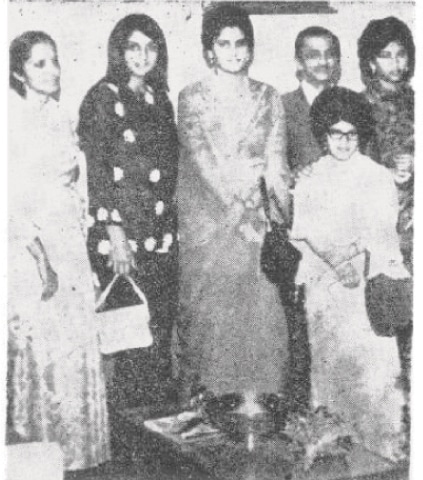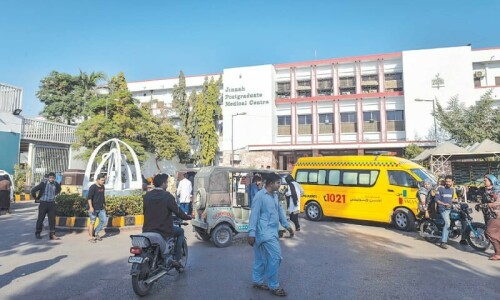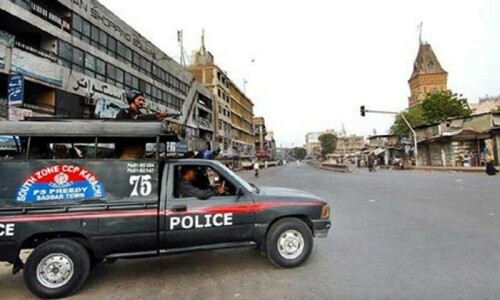
KARACHIITES are known for many things; banana eating is not one of them. The fact is that they have always loved the fruit. There was a time, from the 1960s until the early ‘70s, when getting them proved a bit heavy on their pocket (Rs6 or more for a dozen pieces). On April 5, 1971 it was reported that a decade ago bananas were “luxury” for Karachiites. They could get apples and grapes in abundance, not bananas – which were hard to find and were in the market at exorbitant prices. Now, the report added, the picture had changed. The supply of locally grown bananas had increased greatly. One could get them for as low a price as Rs1.50 per dozen. Citizens of Karachi (in 1971) consumed bananas worth Rs10,000 on a daily basis. To boot, the fruit was being exported as well.
If this could be counted as good news, then two more news items that week filled residents of the Sindh capital with a great deal of hope. First, on April 7, it was announced that the Regional Transport Authority (RTA) had decided to introduce a min-bus service linking the main city with far-off suburban areas, including FB Area and Korangi, in order to tide over the transport crisis. It was also resolved not to issue new permits for rickshaws. To begin with, 100 mini-buses were to be pressed into service for which 10 bus stops were set up.
Then on April 8, the following nugget of information attracted the media’s attention: Pakistan’s first flyover road would be built by the Karachi Municipal Corporation at the Guru Mandir roundabout. For the purpose, the corporation had already selected a Pakistani consulting firm to start a preliminary survey and prepare a comprehensive feasibility report. Although the city needed a number of such facilities to solve the seemingly never-ending traffic issue, the particular area of Gurumandir had been given top priority because it formed an important connection with the Superhighway. Did it happen? Not sure.
By the way, Karachi did need such uplifting plans. After all, it was arguably the most, if not the only, cosmopolitan city of the country visited by foreigners – dignitaries and regular tourists alike – frequently. For example, on April 6, Princess Helen Shah, wife of the younger brother of King Mahendra of Nepal, arrived in the city from New Delhi on a two-day private visit. She was received at the airport by officials of the Foreign Office and local administration. The princess was to leave for Rome on April 8.
On the artistic side of things, on April 4, Dawn published a review of a fine exhibition of Maqsood Ali’s 24 artworks devoted to Sindh on display at the Goethe Institut. It read: “The region of Sindh comes to life in the hands of the 30-year-old artist, Maqsood Ali, who has been painting the people and life in the province for the last four years with singular dedication. He has selected to limit his expressive talents to an area which is rich in tradition and culture – it gets an evocative outlet in Maqsood’s loving and competent hands.”
Published in Dawn, April 5th, 2021











































Dear visitor, the comments section is undergoing an overhaul and will return soon.